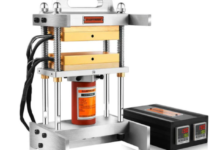How Much Cbd Water Should I Drink

With the increasing popularity of CBD water, many individuals are curious about the appropriate amount to consume. Understanding the correct dosage is crucial to maximize the potential benefits of CBD while avoiding any adverse effects. How Much Cbd Water Should I Drink? In this guide, we will explore factors that influence CBD water consumption and provide recommendations for the ideal dosage.
Whether you are seeking relief from pain, anxiety, or simply looking to enhance your overall well-being, this information will help you make informed decisions about your CBD water intake. Remember, everyone’s body is unique, and finding the right dosage may require some experimentation. By monitoring and adjusting your CBD water intake, you can find the optimal amount that works best for you.
Understanding CBD Dosage
To properly understand CBD dosage, it is essential to familiarize oneself with the recommended guidelines and guidelines set by healthcare professionals.
CBD water, like CBD oil, offers potential benefits such as alleviating pain and reducing anxiety. However, it is important to note that CBD water may have a different absorption rate compared to CBD oil due to its water-soluble nature.
Therefore, it is crucial to follow dosage instructions provided by manufacturers and consult with healthcare professionals for accurate and safe consumption.
Factors Influencing CBD Water Consumption
Several factors can influence the consumption of CBD water.
One important consideration is the potential side effects of consuming CBD water. While CBD is generally well-tolerated, some individuals may experience mild side effects such as dry mouth, drowsiness, or changes in appetite.
Another factor to consider is the benefits of CBD water compared to other forms of CBD consumption. CBD water is a convenient and discreet way to consume CBD, and it may offer faster onset of effects due to its high bioavailability.
Read Also How Long Does a Cbd Pen Last
Recommended CBD Water Dosage
The optimal dosage of CBD water depends on various factors, including individual needs and desired effects. There is no one-size-fits-all recommended dosage as CBD affects individuals differently.
It is advisable to start with a low dosage and gradually increase until the desired effects are achieved. It is also important to consult with a healthcare professional before incorporating CBD water into your routine, especially if you have any underlying health conditions.
Research suggests that CBD water may offer potential health benefits, but more studies are needed to fully understand its effects.
Monitoring and Adjusting Your CBD Water Intake
Monitoring and adjusting your CBD water intake is crucial for optimizing the effects and ensuring that you are consuming the appropriate amount for your individual needs.
To track progress, it is recommended to keep a journal or use a tracking app to record your symptoms, mood, and overall well-being before and after consuming CBD water.
Read Also Who Owns Keoni Cbd
Conclusion
In conclusion, determining the appropriate dosage of CBD water depends on various factors such as individual tolerance, desired effects, and the concentration of CBD in the product.
It is recommended to start with a low dosage and gradually increase it as needed. Monitoring your body’s response and adjusting your intake accordingly is crucial.
Remember to consult with a healthcare professional for personalized advice and guidance.
Overall, understanding the factors influencing CBD water consumption is essential for safe and effective use.






